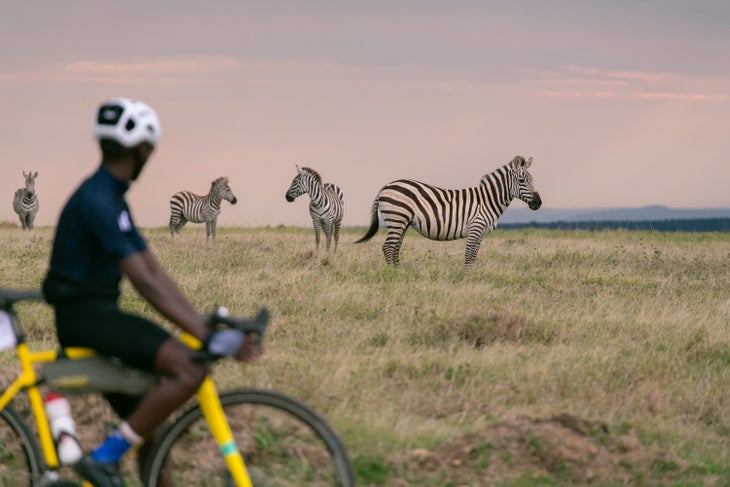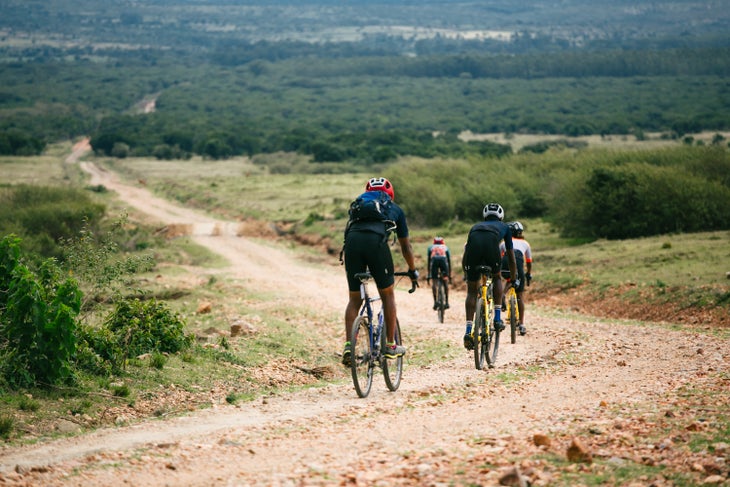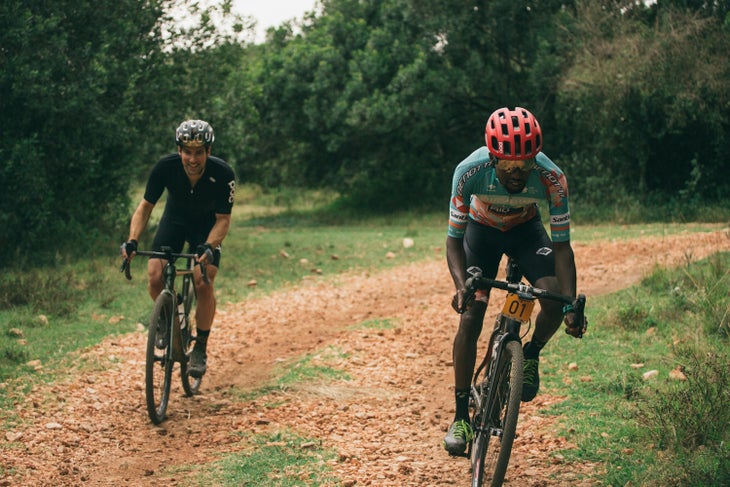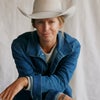During an Unbound Gravel post-race interview with FloBikes, Laurens ten Dam mentions the next event where he’ll line up against the race’s winner Ian Boswell. It catches the commentators off-guard.
Did he say Kenya?
Indeed, the two ex-WorldTour pros who went 1-2 at Unbound will meet again in two weeks in the Maasai Mara of Kenya for the first-ever Migration Gravel Race (MGR).
Read also: Kenya’s Migration Gravel Race: ‘This isn’t another feel-good African development story’
On June 23-26, the MGR will bring together riders from all over the globe to compete on a rugged and remote 650km course during the annual wildebeest migration in the Maasai Mara.

In addition to ten Dam and Boswell, some of East Africa’s top cyclists will be in attendance, including Tour du Rwanda podium finisher Sule Kangangi, Kenyan national mountain bike champ Nancy Okinyi Debe, and Paul Kato and Peter Wasswa of Uganda’s Masaka Cycling Club. Some 70 riders will be in attendance.
For the roughly 25 percent of riders in the MGR peloton who hail from Kenya, Rwanda, and Uganda, the race is an opportunity unlike any other.
Historically, aspiring professionals from this part of the world have been left out of traditional pathways to a career in cycling. For the past two years, Amani, a Dutch-African partnership that is the umbrella organization of the Migration Gravel Race, has been working to undo decades of excuses as to why East Africans cannot succeed in the traditional European model of professional road cycling.
“If you take a myopic approach,” says Mikel Delagrange, the founder of Amani and MGR, “It really is about the lack of racing opportunities.”
Delagrange is an American attorney working at the International Criminal Court in the Hague. His professional work in East Africa, coupled with his personal passion for cycling, motivated him to seek ways to be part of a change.
Amani was founded to attempt to break through some of the barriers to entry for African cyclists. Its notable programs include providing African clubhouses with smart trainers and coaching programs, setting up cultural exchanges for East African cyclists in the Netherlands, and now, hosting a gravel race in the riders’ own backyard.

Initially, the concept of the Migration Gravel Race sought to address the dearth of racing opportunities in Africa for Africans. After all, without events at home, how could African pros prepare for racing in Europe? Delagrange and his co-organizers reached out to current and former WorldTour pros to invite them to test their legs against some of East Africa’s best, on the continent.
Yet since the race’s inception and now, before its debut, Delagrange has already begun to see its potential in a new light.
“If it goes well, there’s talk of creating an East African gravel team under the Amani banner,” Delagrange says. “Forever now, for the last 10 years especially, the path to success that these guys were hearing about was so narrow. It was WorldTour or bust. And that was so hard, for a million reasons. But now, with gravel taking off in the way that it has, with guys like Pete and Ian just going gravel and making a living out of it, somehow it’s created a new opportunity.”
The singular message — that there is only one road to becoming a professional cyclist and it goes through Europe — can now be interpreted in different ways. While the popularity and success of gravel racing in North America have taken many inside the cycling world by surprise, after last weekend’s Unbound Gravel, there is no denying it: the most significant bicycle race in the United States is on gravel.
While it will require a shift in mindset for the riders who have only seen tarmac as the future, seeing the newfound successes of cyclists like Boswell and ten Dam on gravel through social media help stoke the fire. The team behind the Migration Gravel Race has helped fan the flames even further by partnering with Wahoo to give more East African riders motivation ahead of the race.

“The top four or so guys from each country — and their coaches — have been put on a program and monitored by Wahoo Sports science coaches using Sufferfest,” Delagrange says. “Apart from getting them an extra training boost ahead of the race, the idea was to get yet another metric by which to factor in on who will get a shot at the U.S. gravel races.”
Further centering gravel racing as a possibility unto itself, Wahoo and the MGR will award the race’s top three East African finishers all-expenses-paid trips to compete in this year’s Belgian Waffle Ride Asheville and SBT GRVL.
From Kansas to Kenya, gravel’s great migration has only just begun.
I will be reporting on and racing the Migration Gravel Race, so stay tuned to VeloNews for continuing coverage of this new event.
